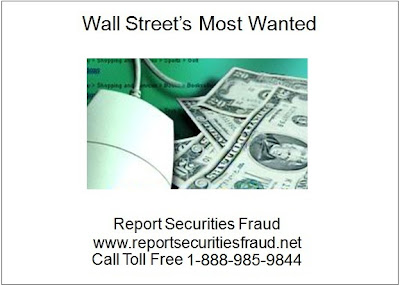Washington, D.C., March 11, 2013 — The Securities and Exchange Commission today announced charges against New York-based private equity firm Ranieri Partners, a former senior executive, and an unregistered broker who violated securities laws when soliciting more than $500 million in capital commitments for private funds managed by the firm.
The federal securities laws require that an individual who solicits investments in return for transaction-based compensation be registered as a broker. An SEC investigation found that William M. Stephens of Hinsdale, Ill., solicited investors as a hired consultant for Ranieri Partners and was paid fees by the firm, but never registered as a broker. Stephens’ longtime friend Donald W. Phillips, a senior managing director who headed up capital raising efforts for Ranieri Partners, was responsible for overseeing Stephens’ activities as a purported “finder” who would merely make initial introductions to potential investors. But Stephens’ role went far beyond that of a finder. He consistently communicated with prospective investors and their advisors and provided them with key investment documentation that he received from Ranieri Partners.
Ranieri Partners, Phillips, and Stephens agreed to settle the SEC’s charges.
“Registered brokers are subject to SEC oversight and examinations in order to monitor their conduct and protect the interests of investors,” said Merri Jo Gillette, Director of the SEC’s Chicago Regional Office. “Investors in Ranieri Partners’ funds were denied these protections because Stephens acted outside the boundaries of the law, and Phillips and the firm ignored the essence of his activities.”
According to the SEC’s orders instituting settled administrative and cease-and-desist proceedings, Stephens engaged in the business of effecting transactions in securities in several ways despite not being registered as a broker or affiliated with a registered broker-dealer. Stephens sent private placement memoranda, subscription documents, and due diligence materials to potential investors, and urged at least one investor to consider adjusting portfolio allocations to accommodate an investment with Ranieri Partners. Stephens provided potential investors with his analysis of the strategy and performance track record for Ranieri Partners’ funds, and also provided confidential information identifying other investors and their capital commitments. The SEC charged Stephens with violating Section 15(a) of the Securities Exchange Act, which requires people acting as brokers to be registered with the SEC.
The SEC’s order against Phillips and Ranieri Partners found that Phillips, who lives in Barrington, Ill., aided and abetted Stephens’ violations by providing Stephens with key fund documents and information while ignoring red flags indicating that Stephens had gone well beyond the limited role of a finder and was actively soliciting investments. The order found that Ranieri Partners caused Stephens’ violations.
In settling the SEC’s charges, Ranieri Partners agreed to pay a penalty of $375,000, Phillips agreed to pay a penalty of $75,000, and Stephens agreed to be barred from the securities industry. The SEC’s orders require each of them to cease-and-desist from further violations of Section 15(a). The SEC also suspended Phillips from acting in a supervisory capacity at an investment adviser or broker-dealer for nine months. Ranieri Partners, Phillips and Stephens consented to the entry of the SEC’s orders without admitting or denying the findings.





























